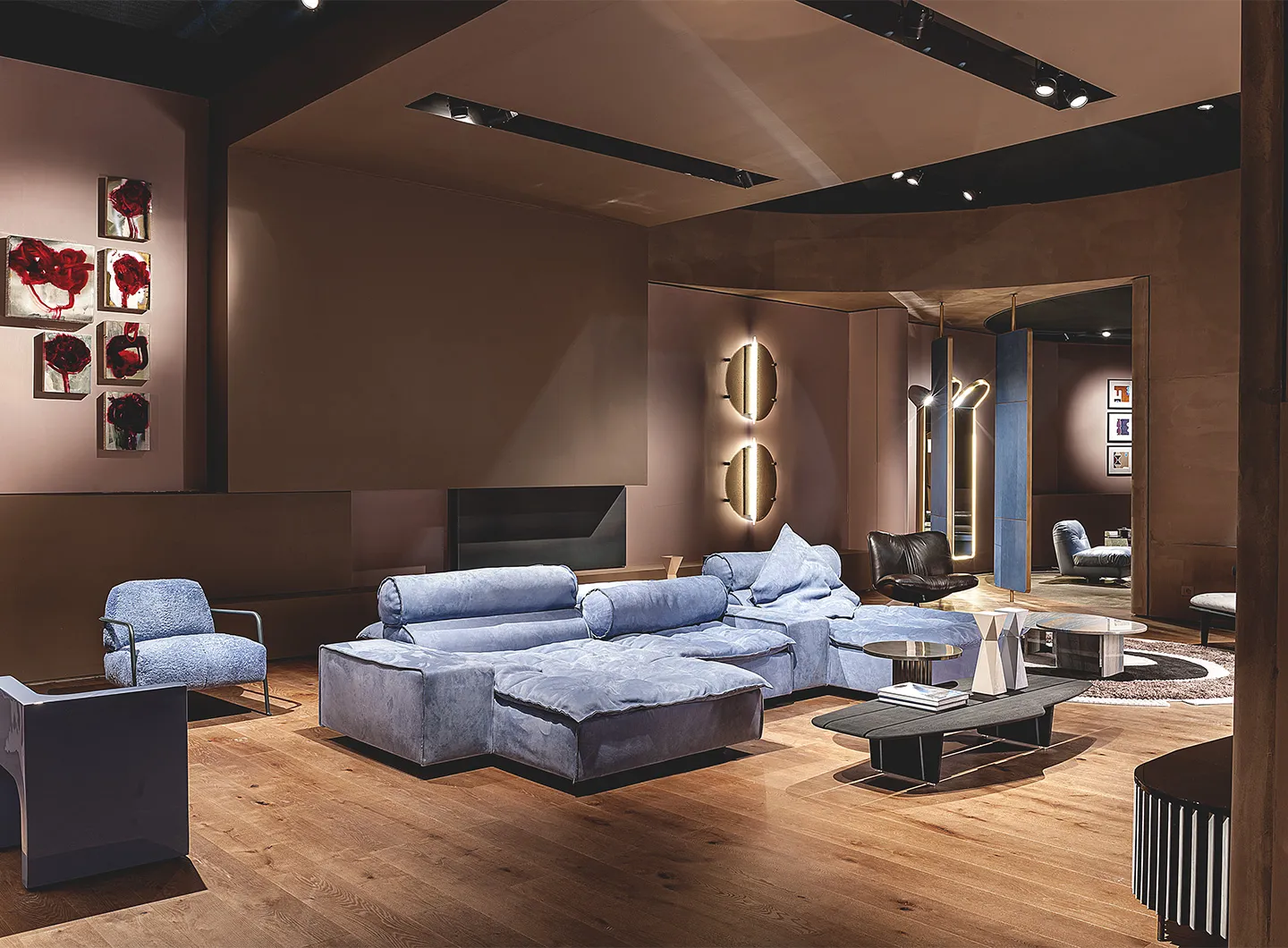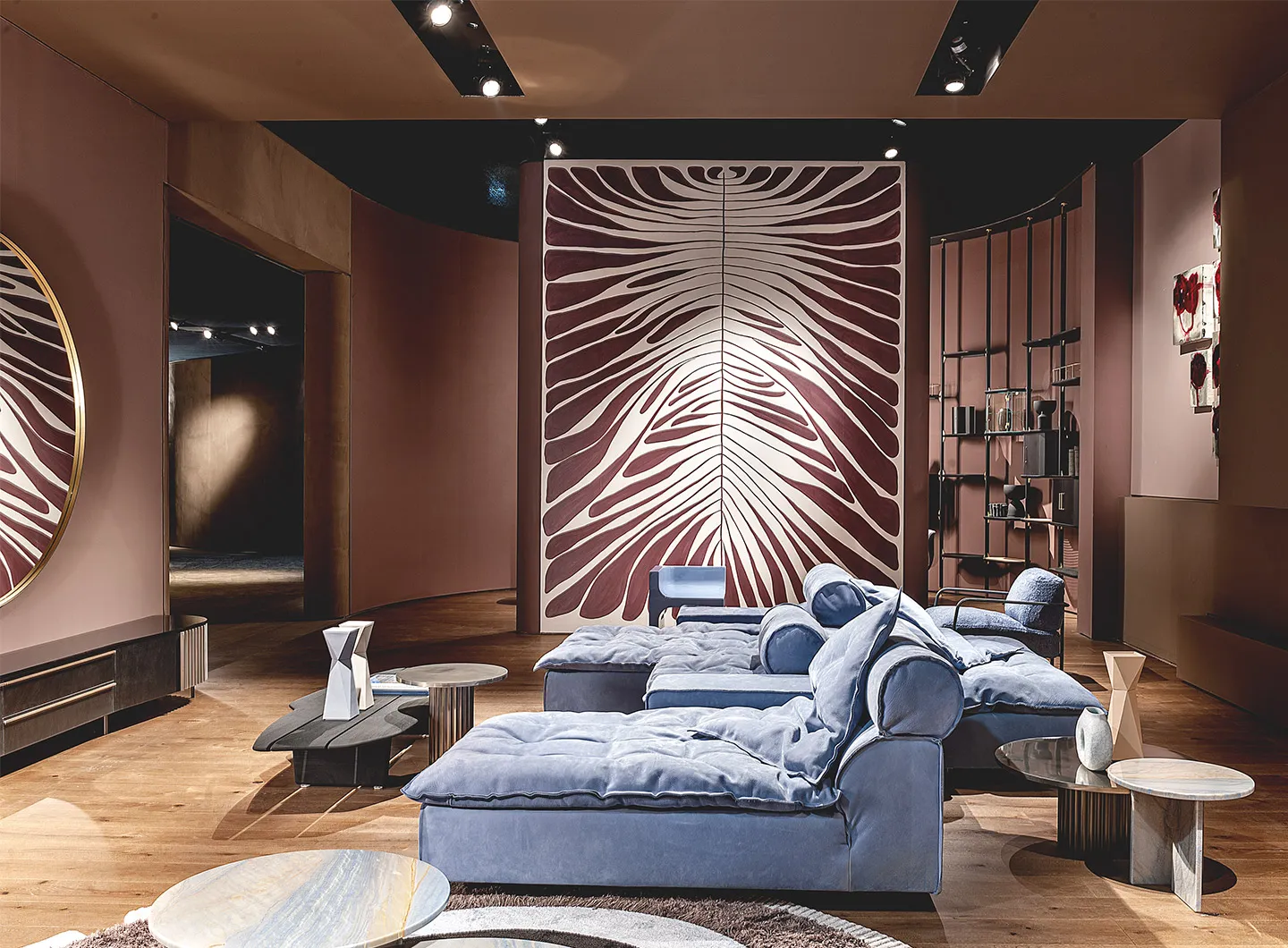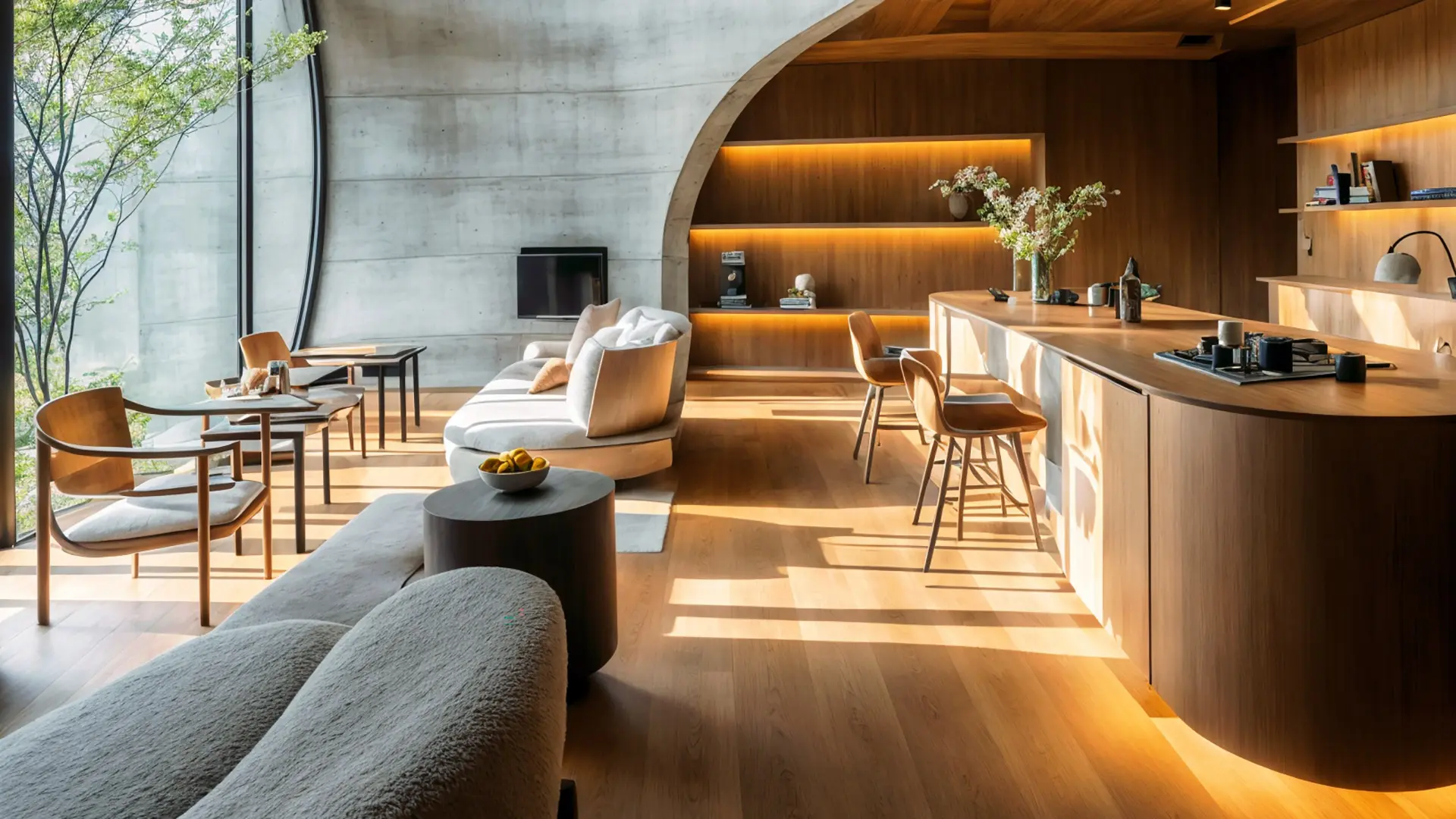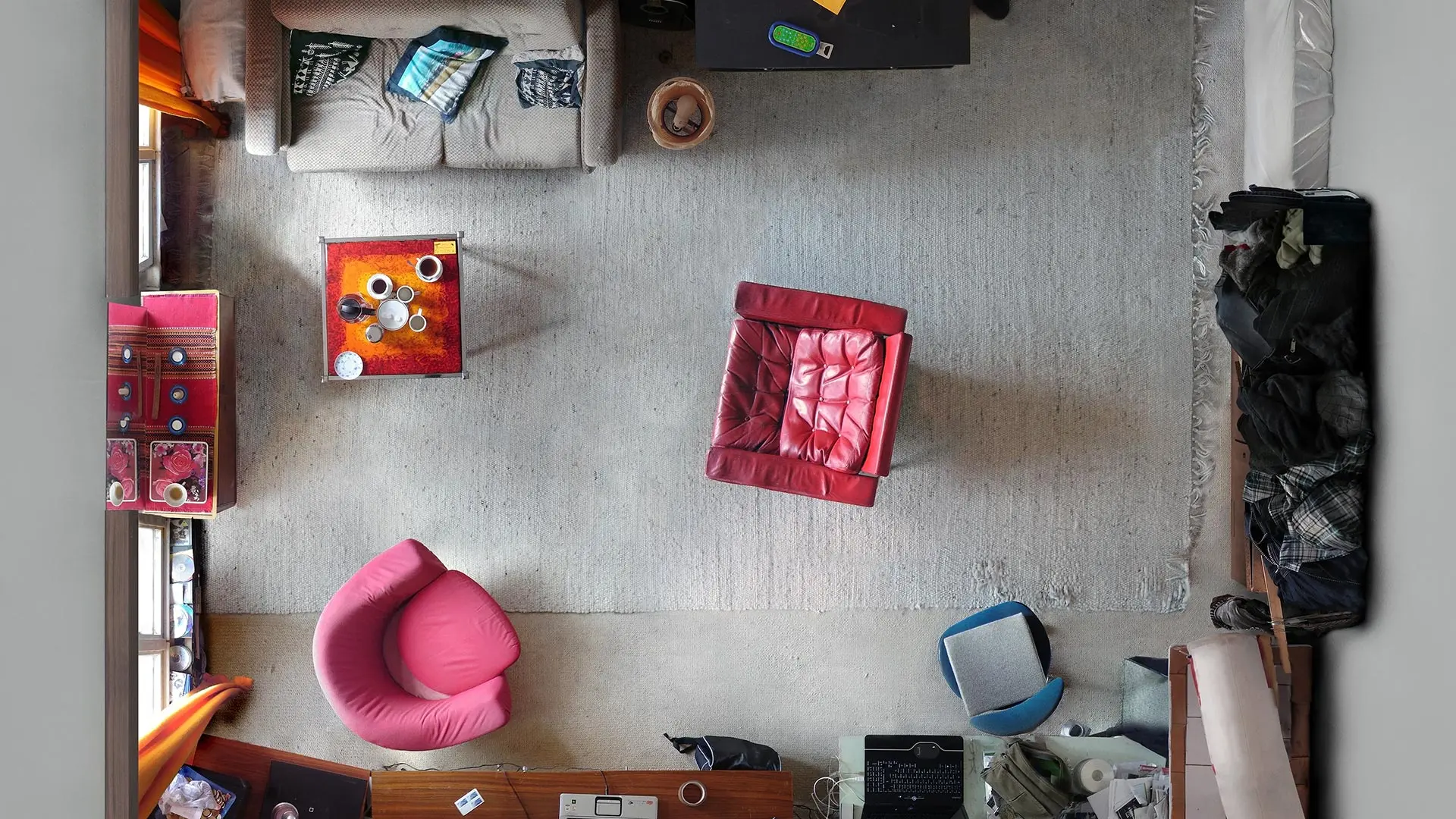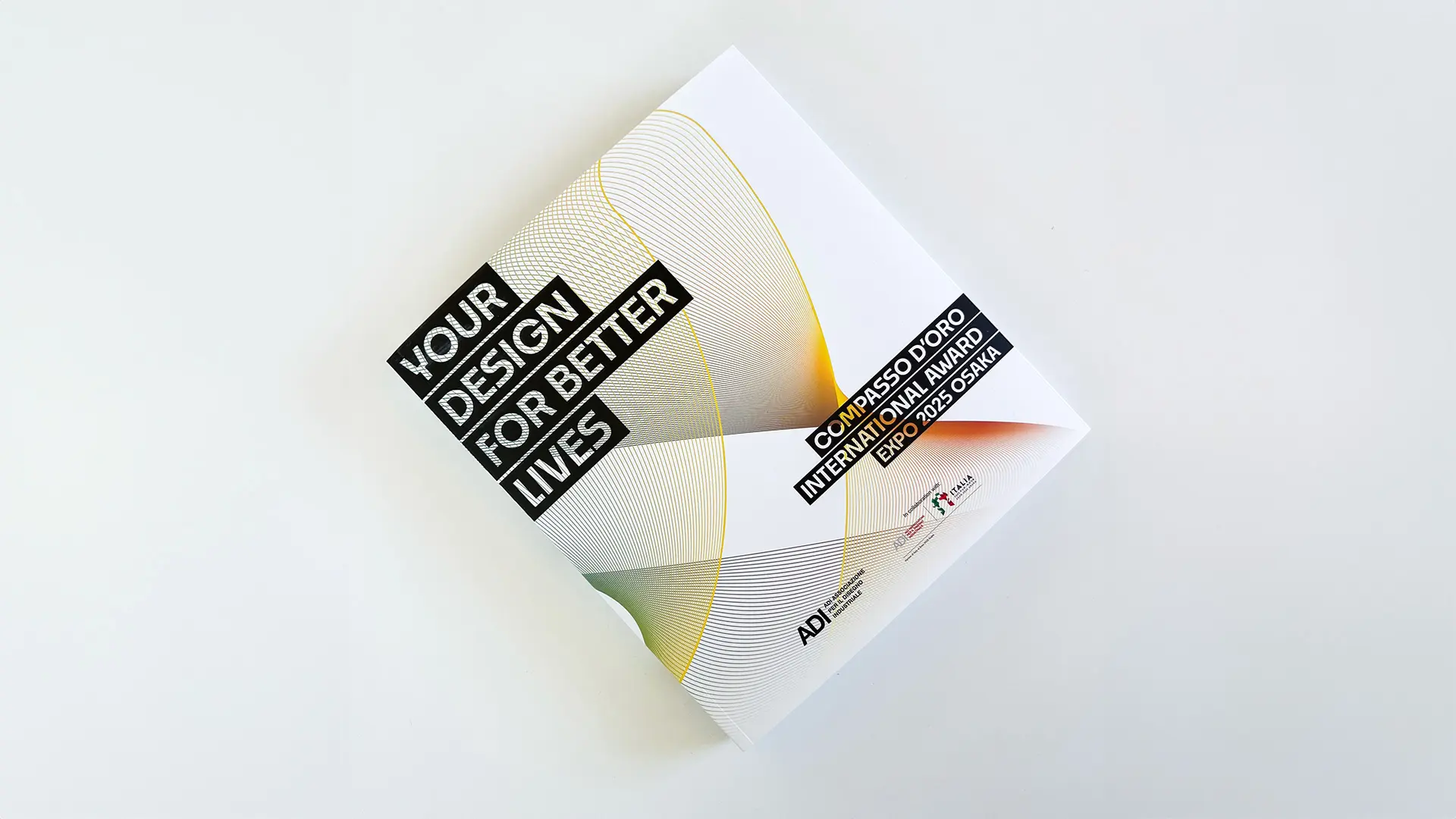Smart and sustainable purchases: how to make the most of the appliance bonus and how to apply. Requirements, amounts and limits to be aware of
Baxter's passion for leather. In conversation with Paolo Bestetti
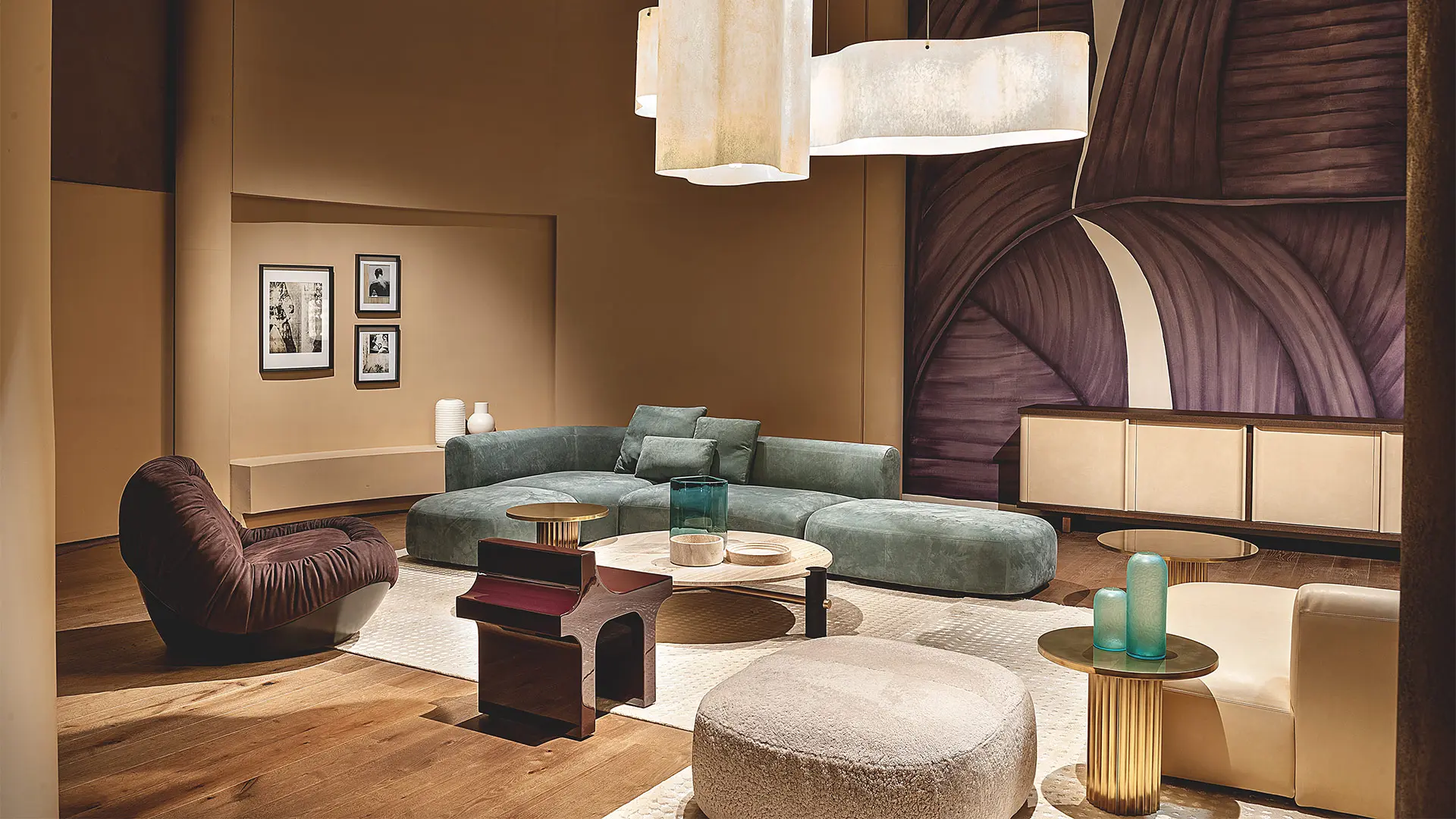
Baxter, Salone del Mobile.Milano stand, 2022
Baxter’s history has its roots in the centuries-old entrepreneurial tradition that grew up around Lake Como, a historic district for the production of furniture of excellence. Founded in 1990 by Luigi and Paolo Bestetti, the first grew out of the passion for a material and is the result of a manufacturing culture. Conversation with CEO Paolo Bestetti
I recognize myself in a piloted democracy. There is certainly great teamwork but then there is always someone who takes the responsibility. The other family member who works in the company is my uncle Luigi Bestetti, the President of Baxter.
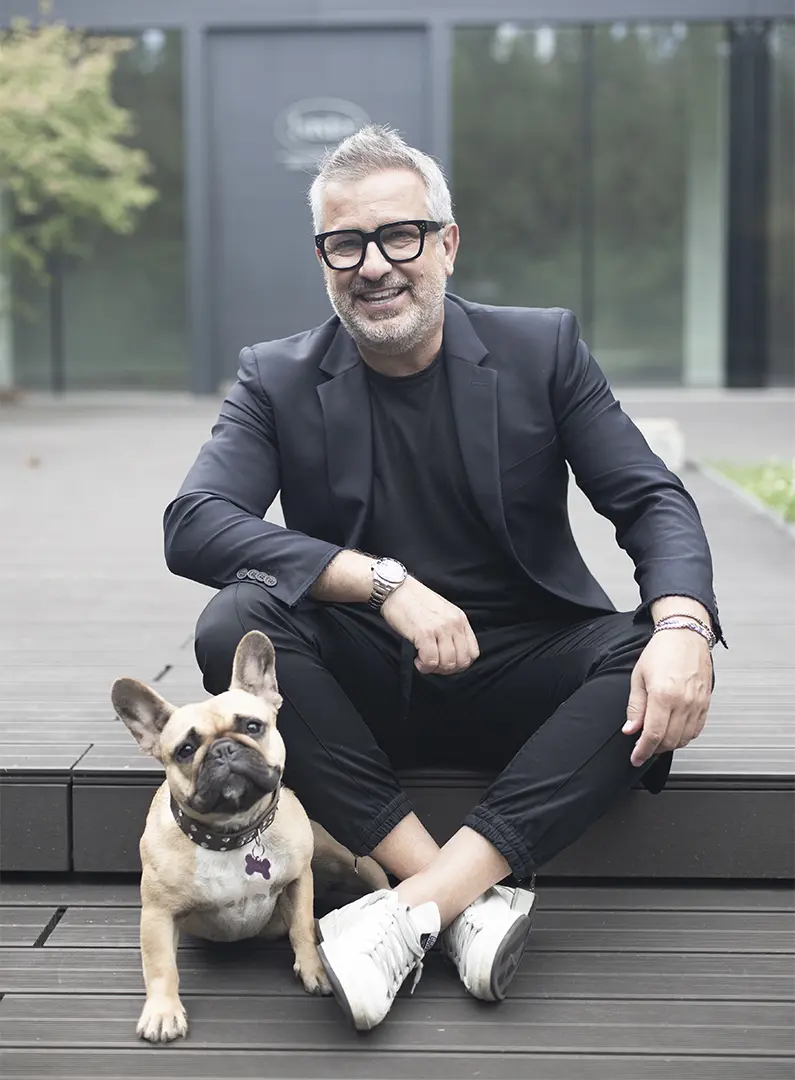
Paolo Bestetti, CEO Baxter with his dog Moka
Since Baxter was founded thirty-two years ago, there have been multiple significant advances. One of the most important for us was definitely the transition from being a strongly classical company to a design company, a changeover that took three years. Thirty-two years ago, at the start of its adventure, Baxter presented itself with classic upholstery with a typically English mood, but with details of carefully studied elegance that helped to distinguish the brand’s quality and reliability. Today, the Baxter that presents itself to its public is the outcome of a set of technical, design and artistic skills and abilities that have made it possible to transform the product into a complete design and personal consultancy service.
One of the products I’m particularly attached to is the Housse armchair designed by Paola Navone. This project suggests a true metamorphosis of leather, which is worked and interpreted like a fabric and finished like a fashion accessory, presenting itself as a new and versatile material.
We’re working on the second part of the new Outdoor collection. The products will be by the designer Paola Navone.

Baxter, Housse, design Paola Navone, 2007
As far as family businesses are concerned, I personally believe that the concept of the family is more closely linked to participation by the people who work within the company. It's more about making people feel part of what they're doing and the results achieved in terms of goals. This is what the concept of family actually means to me. In particular, I don’t consider Baxter a family business since there is no family running the whole company. As far as the concept of a family linked to a company as a generational transition is concerned, it’s something that I don’t see as a logical consequence or a fact. It is certainly an opportunity, but then everyone with their own skills has to demonstrate this and sometimes it’s harder than for an outsider. Finally, what I think is that if the rest of the family at the work level is involved in the same field, though not directly in the company itself, connections are created and a ramification of information leading to a dialogue and an exchange of information itself.

Baxter, Salone del Mobile.Milano stand, 2022
On the one hand I see this period as a time of opportunity, while on the other I think that we don’t yet have any real perception of how far all the changes will impact us on the social level. What I see is that there is no real knowledge but a sort of passive acceptance of a state of affairs, which ought not to be tolerated, since the situation has been created by financial speculation.
I can say that we are preparing plans within the year just to compensate for this negative impact on the social level, but also within what we call the Baxter family.


